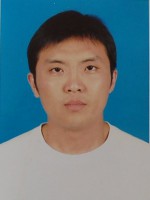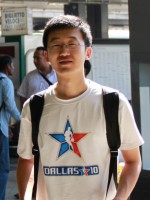abstract
Targeting low temperature cofired ceramics (LTCC) applications and base-metal electrode multilayer ceramic capacitors (BME-MLCCs), ceramics of a new composition, tricopper tellurate (Cu3TeO6), are reported here. The crystal structure of Cu3TeO6 was determined to be cubic, Ia3, with the unit cell parameter a = 9.538 angstrom. The sequence of phase formation is proposed with the oxidation of tetravalent tellurium (Te4+) into hexavalent tellurium (Te6+) as a key step for the formation of Cu3TeO6. Ceramics sintered at 865 degrees C with densities of 94% exhibit two dielectric anomalies in the temperature dependence of the dielectric response, around -150 degrees C and +50 degrees C, respectively, accompanied by obvious frequency dispersion of the relative permittivity (epsilon(r)) and dielectric losses (tan delta), with an Arrhenius like behavior. A temperature stable dielectric region (near room temperature) formed between the two anomalies with epsilon(r) similar to 12 and tan delta similar to 0.01, and a very low positive temperature coefficient of the relative permittivity (TC epsilon(r)), 2.07 X 10(-4) degrees C-1, was obtained in the same region. The low temperature dielectric anomaly is associated with the possible mixed Cu+/Cu2+ valence in Cu3TeO6 ceramics, while the high temperature anomaly is attributed to point defect ordering, including V-O, Cu-Cu2+(+)',which might be formed during sintering. Therefore, Cu3TeO6 ceramics are of interest in view of not only the possible applications in BME-MLCCs, LTCC, and related technologies, but also for their possible compatibility with low cost abundant Cu electrodes.
keywords
CRYSTAL-STRUCTURE; BI2O3-TIO2-TEO2 SYSTEM; CUTEO3; CUTE2O5
subject category
Science & Technology - Other Topics; Materials Science
authors
Zhu, XL; Wang, ZH; Su, XM; Vilarinho, PM
our authors
acknowledgements
The authors acknowledge Fundacao para a Ciencia e a Tecnologia (FCT), Fundo Europeu de Desenvolvimento Regional Portugal (FEDER), QREN-COMPETE Portugal, and the Associate Laboratory CICECO (PEst-C/CTM/LA0011/2013) for funding support. X.S. and X.Z. acknowledge FCT for financial support (SFRH/BD/44311/2008 and SFRH/BPD/82534/2011). Thanks to Rob C. Pullar for proof-reading the English in this article.





